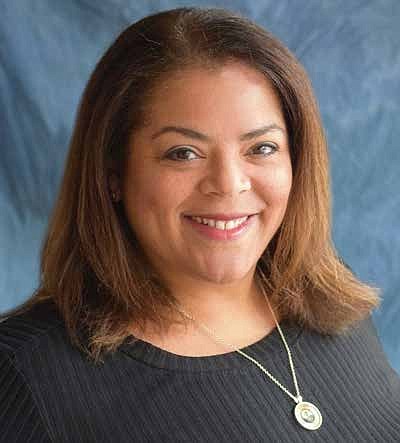Chicago Lights Executive Director Recollects 25 Years In The Tutoring Industry
BY TIA CAROL JONES
Stacy Jackson, executive director of Chicago Lights, has been with the organization for 25 years. She has served as Associate Executive Director and Director of the Tutoring and Summer Day programs. She has seen some of the most vulnerable communities in Chicago affected by the housing crisis, Polar Vortex and COVID-19.
Jackson recalls when she went to Chicago Lights to interview for her first position with the organization. She was sitting in the lobby and while she waited, the wealthiest person she ever encountered and someone experiencing homelessness
passed her. She saw people from different races and backgrounds. She knew she wanted to be part of an organization that is more of a community that unites and care for others.
Chicago Light was founded in 1964. Its first tutoring program was facilitated by members of Fourth Presbyterian Church. Those members wanted to help students in nearby Cabrini Green Homes with their homework. From that meeting of a small group of adults and children, it grew to four nights a
week, serving more than 400 students and more than 400 adults. Listening to what participants wanted, more programs were added, leading the organization to expand.
“Our whole goal is to build brighter futures for Chicago’s youth and adults. We do that by partnering with our participants through mentoring, arts education, urban farming, social services and career development,” Jackson said.
One of Jackson’s best memories during her time at Chicago Lights is when a tutor pair who worked together for a while, the student reported that he received a B on his math test. Jackson could see the trajectory of his life changed because he was aware of what he was capable of.
Chicago Lights provides clothing, food, referrals and case management to people experiencing homelessness, as well as helping people who have stable but low incomes get housing.
Youth career development has been one of Jackson’s favorite projects. It helps young people get a taste of what it is like to work, with a goal of staying in school, graduating from high school, going to college, if that is their path. The ultimate goal of the program is to have the youth to land in their career of choice, something they were born to do. That way, they can thrive in their life, enjoy themselves and be able to pay their bills.
As a woman of color in the non-profit industry, Jackson believes her role is to help people from various backgrounds understand one another and be curious about one another and
realize they need each other. While her counterparts at other places have experienced microaggressions and tokenism, Jackson has been given a lot of grace in her workplace.
The same issues Jackson encountered 25 years ago in the non-profit industry are still there. People are still hungry, people still need housing and young people still need help with their
education. She has seen some changes.
“In terms of the industry, I’ve seen a change in what we would call charity to really being a social impact sector, with the knowledge that what is going on in non-profit, there are
business principles, we are working hard, there is expertise. So, I think there is a little bit more acknowledgement that that’s the case,” she said.
During COVID-19, Chicago Lights had to pivot from having personal one-on-one programs and put them on a vitural platform. Services has to be done curbside. Because connection and intimacy gets lost, there has been a lot of focus on connection. Chicago Lights also has found there is an
opportunity for programs to expand and do programming with students outside of Chicago.
“In terms of philanthropy, as it relates to the social impact sector, I think instead of being so donor-centric, we’re going to be community- centric and have people tell their own stories and be really focused on the work,” Jackson said. “What I hope is we don’t have to spend so much time trying to get the dollars
… that we can spend the time doing the work that needs to be done for people and we just make matches between the work and philanthropy.”
For more information, visit https//chicagolights.org.

